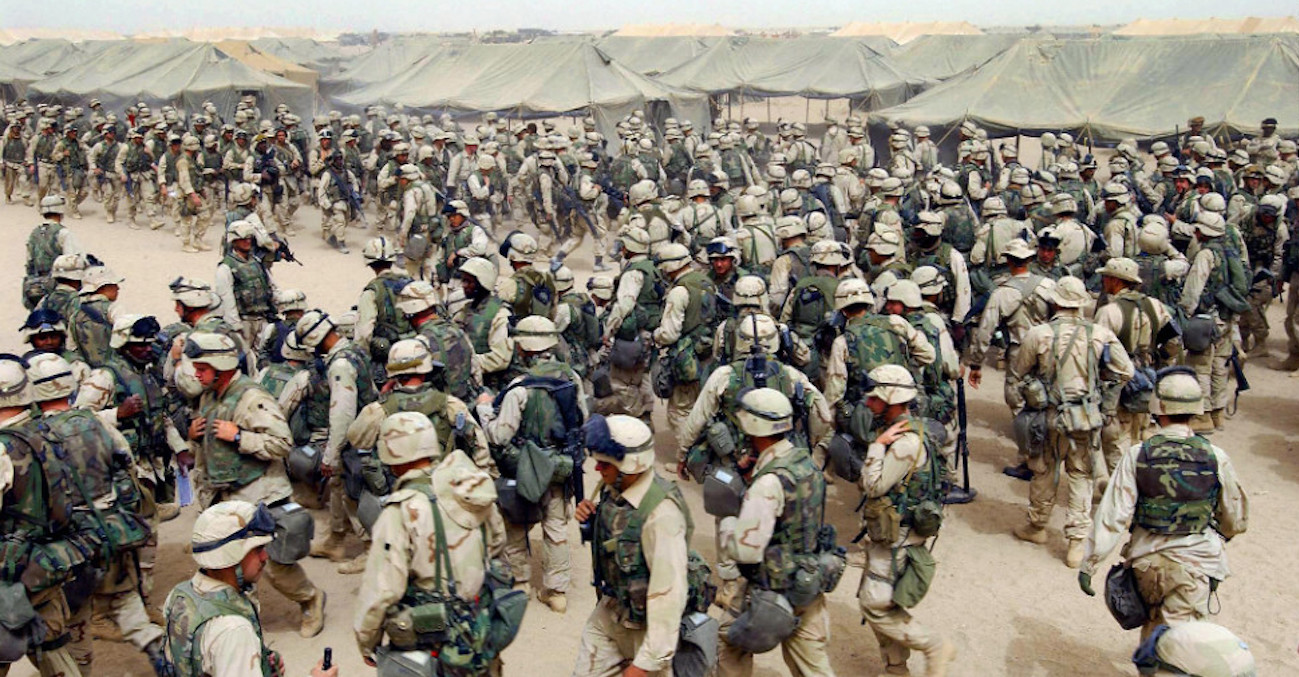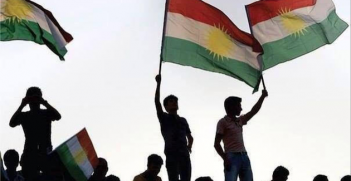A Tragic Anniversary: The Costs of the Iraq Invasion

Fifteen years ago, a United States-led ‘Coalition of the Willing’ invaded Iraq on spurious pretexts. Toppling the Ba’athist regime of Saddam Hussein unleashed violent forces that have ravaged the country ever since.
Iraqis have paid a staggering human cost for Operation Iraqi Freedom, a reality perhaps foreshadowed by the infamous remark by retired United States General Tommy Franks, “We don’t do body counts.” A conservative, independent assessment by Iraq Body Count estimates that between 180,807 and 202,757 civilian deaths from violence have occurred since 2003. By 2006, however, the medical journal Lancet had already pegged fatalities at more than 600,000, with subsequent studies validating and expanding this number to well over one million.
Successive waves of violence since 2003—insurgency, airstrikes, terrorism, communal violence—exacted a terrible toll by displacing people and destroying homes, infrastructure and livelihoods. Today, 8.7 million Iraqis are in need of humanitarian assistance, 2.6 million of whom are displaced, in a nation of approximately 37 million. Compounding the effects of the previous 15 years of war and sanctions, the invasion and its aftermath have turned a breadbasket of the ancient world into a country reliant on food imports.
On this inauspicious anniversary, it is time to reflect on the mendacity of the political leaders who initiated the war, the internal and external actors who sparked and continue to fuel conflict in Iraq and the lessons that can be learned from this dark chapter in our recent history.
“No blood for oil”
The rationale for the 2003 invasion of Iraq was Baghdad’s alleged possession of ‘weapons of mass destruction’ (WMDs) that might be provided to al-Qaeda. War-planning began almost immediately following the 11 September 2001 terrorist attacks in the US, yet archive documents show that regime change in Iraq had been on the foreign policy agenda for years. In hindsight it’s clear that the neoconservative administration of US President George W. Bush sought a pretext for militarily confrontation and removal of Saddam Hussein. Linking Iraq to the threat of al-Qaeda provided that pretext.
The regime change agenda took the form of a disinformation campaign, largely driven by the US and UK governments, to discredit UN weapons inspectors and create public fear of Iraq. Bush branded Iraq, along with Iran and North Korea, part of an “Axis of Evil” endangering world security; while the UK Blair government’s notorious ‘sexed-up’ dossier claimed Iraqi weapons posed an immediate danger to the UK. The US sought the UN’s imprimatur to provide international legitimacy for the invasion, hypocritically invoking previous resolutions regarding Iraq’s putative WMDs while simultaneously deriding the UN as irrelevant.
In streets around the globe, the arguments for war didn’t cut through. Culminating on 15 February 2003, millions marched in a global day of action; popular opposition to the planned invasion galvanised into what is arguably the largest and most transnationally connected protest movement in human history. Hundreds of thousands of Australians took part. Banners declared “No blood for oil” and speakers railed against an illegal and imperialist war.
The then Prime Minister John Howard was adamant that a decision to take part in the invasion of Iraq did not require him to consider opinion polls or listen to protesters. Rather, Australia’s national interest in remaining a steadfast ally of the US was preeminent. As the protests continued without any real impact on the decisions of governments, we glimpsed both the potential and seeming ineffectiveness of people power in opposition to a determined drive to war.
The invasion was also opposed in the UN. Key NATO allies and UN Security Council members France and Germany—at this point central military contributors to the fight against al-Qaeda and the Taliban in Afghanistan—took a firm stand against the war. France briefly took on the unlikely role of anti-imperialist in-chief, threatening to veto any Security Council resolution authorising the war. The response was as swift as it was childish: French fries were rebranded ‘freedom fries’ in parts of the US. Quelle horreur!
Cause and consequence
The causes of the invasion will be debated for some years to come—whether imperialism, terrorism, oil, personality or ideology—however its far-reaching political and humanitarian consequences can be observed and, hopefully, learned from. Some of the primary outcomes of the invasion have been both unintended and tragically ironic.
Not only were no WMDs found, there was no evidence of ties between al-Qaeda and the Iraqi regime. Prior to the Iraq invasion, al-Qaeda was on the ropes and on the run, while its Taliban hosts in Afghanistan had seemingly been smashed by an international coalition. The invasion of Iraq, however, breathed new life into the global jihadist movement. There was no al-Qaeda in Iraq (AQI) prior to 2003; the country’s rapid descent into pandemonium provided fertile recruiting ground for the jihadists.
The chaotic insecurity unleashed by the invasion, and the emergence of insurgency and jihadist terrorism, was compounded by the incongruous US decision to disband the Iraqi army and dismantle the bureaucracy. This effectively hollowed out the capabilities of the state while disenfranchising hundreds of thousands of former members of the security forces and government employees. Former Ba’athist officials and military personnel later constituted the core planning cadres of the successor to AQI, the Islamic State terrorist group: Da’esh.
Moreover, rather than bringing liberal democracy to Iraq—the new mission in the absence of WMDs—the occupying power installed a provisional government based on ethno-sectarian quotas. This was largely filled by ‘carpetbaggers’ returning from decades in exile. Many lacked a natural support base amongst the local population, so appealed to sectarian identities to augment their political standing. Today, Iraqis stage weekly protests demanding an end to this quota system and the corruption they believe it entrenches.
As with the 1991 war against Iraq to remove its forces from Kuwait, the destruction of the Iraqi state in 2003 ruptured regional power relations to the benefit of Iran. Ironically, given Bush’s assignment of Iran to the ‘Axis of Evil’, the destruction of Iraq and the long-term weakening of its security forces provided an opportunity for Iran to establish itself as the most powerful foreign influence in the country. Today, the rising influence of Iran is a topic of discussion in the region and beyond, from well-founded local concerns about political and economic influence, to Western analysts focused on putative Iranian expansionism though paramilitary groups operating in Iraq and elsewhere.
A cautionary tale
Many of the lessons of 2003 and its aftermath have been learned by Iraqis struggling to live with the legacies of the invasion. Others are in front of us now. It remains to be seen who will learn them and how they will be applied.
Foremost among these lessons is the fluidity of war. Unsurprisingly in an era of rapid globalisation, the Iraq war has not remained localised: Syria is aflame; Da’esh commits atrocities in the streets of Europe and elsewhere; and refugees have fled the maelstrom in their millions. Despite the territorial demise of Da’esh, conflict in the region is set to continue as old rivalries and grievances resurface with a vengeance.
The denouement of the Iraq invasion is the shattering of a unified state and the fragmentation of political and social identities. Local, regional and transnational actors currently compete for influence and advantage. Policymakers must confront the reality of fragmentation as they seek ways to deal with with legacies of 2003. Antiquated maxims of military force have barely borne fruit since World War II and are demonstrably unable to contend with the complexity and fluidity of transnational conflict today. The 2003 invasion provides a cautionary tale about the limits of military force and a need for alternative strategic thinking.
As many of us did in 2002 and 2003 when confronting a disinformation campaign and a drive to war, today we must treat with caution and scepticism media reports that North Korea is providing WMD to the Syrian regime and arguments that a war on North Korea would be “very, very brief”. The same applies to bellicose statements about Iran. We have heard this all before.
To this day, no one has been held accountable.
Damian Doyle is a PhD scholar at the Centre for Arab and Islamic Studies at the Australian National University. His research is focused on social movements and contentious politics in Iraq. Follow him on Twitter: @toaf.
Dr Tristan Dunning is a lecturer at the University of Queensland. He is the author of ‘Hamas, Jihad and Popular Legitimacy: Reinterpreting Resistance in Palestine’. Follow him on Twitter: @trisdunning.
This article is published under a Creative Commons Licence and may be republished with attribution.





